When it comes to selecting the perfect place to call home, one of the most fundamental decisions you’ll face is whether to reside on the top floor or the ground floor. This choice can significantly impact your daily life, comfort, and even your overall well-being.
As the real estate market continues to evolve and adapt to changing lifestyles, the debate between the top and ground floors has never been more relevant. Both options offer distinct advantages and drawbacks, making it crucial to consider your personal preferences, needs, and circumstances before making this pivotal decision.
In this article, we will delve into the age-old dilemma of top floor versus ground floor living, exploring the unique benefits and drawbacks of each option.
Advantages of Upper Floors
Enhanced Privacy
Living on an upper floor typically means fewer passersby and less noise from the street, providing a greater sense of privacy. You’ll often have fewer neighbors passing by your windows, reducing the chances of prying eyes.
Better Views
Upper floors often offer stunning panoramic views, whether it’s a scenic cityscape, lush landscape, or serene skyline. The elevated position can grant you breathtaking vistas that ground floor dwellers may miss out on.
Improved Security
Upper floors can be considered more secure, as they are less accessible to potential intruders. Burglars are less likely to target upper-level apartments due to the added difficulty of entry and escape.
Natural Light
Being higher up means you’re closer to the sun and more likely to receive natural light throughout the day. This can create a brighter and more inviting living space, potentially reducing the need for artificial lighting.
Ventilation
Also upper floors often benefit from better ventilation and airflow. This can be especially advantageous in hot climates, as it can help keep your living space cooler without the need for excessive air conditioning.
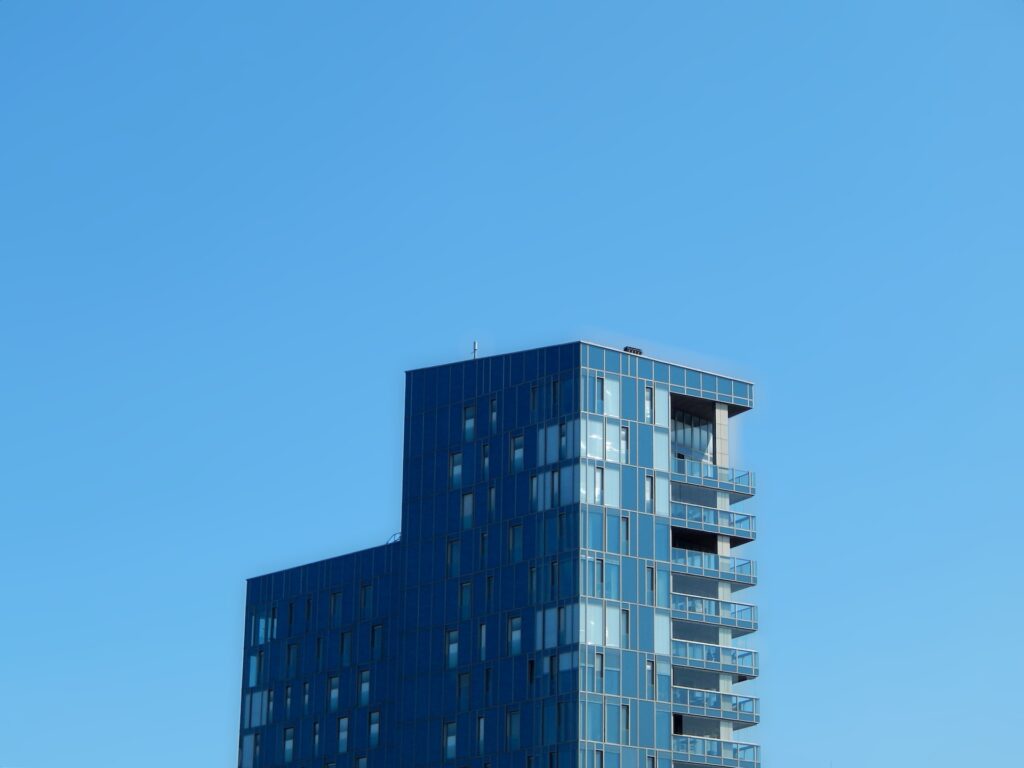
Disadvantages of Upper Floors
Stairs or Elevator Reliance
Upper floors usually require the use of stairs or elevators to access your home. This can be inconvenient, especially when moving furniture, groceries, or during power outages.
Physical Demands
Climbing stairs daily can be physically demanding, making upper floors less suitable for individuals with mobility issues or those who dislike stairs.
Temperature Variability
Upper floors can experience temperature extremes, with the space often being warmer in the summer and colder in the winter due to their proximity to the rooftop and external elements.
Higher Costs
In some cases, apartments on higher floors may come with a higher price tag due to the views and added privacy they offer. Additionally, utility costs may be higher due to increased heating and cooling demands.
Emergency Evacuation
In the event of a fire or other emergencies, upper floors may be more challenging to evacuate quickly, especially if elevators are out of service. This can be a safety concern.
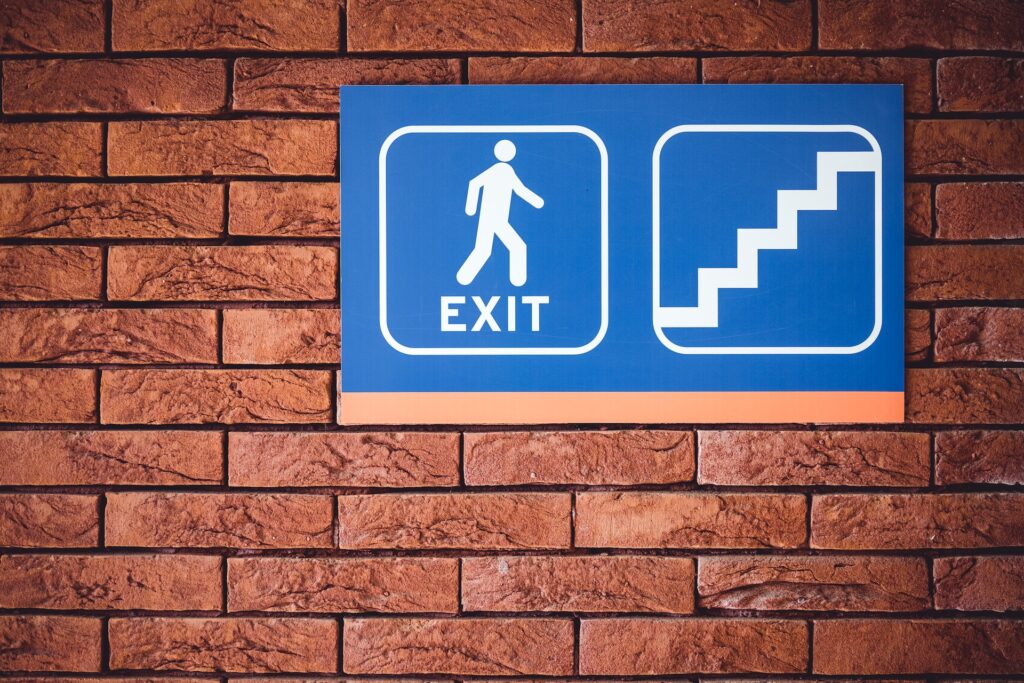
Advantages of Lower Floors
Accessibility
Lower floors are easily accessible, typically requiring only a short walk from the building entrance. This can be especially beneficial for people with mobility issues, young children, or those who prefer not to use elevators.
Convenience
Living on a lower floor means fewer stairs to climb, making it easier to move in and out, transport groceries, and perform everyday tasks without the need for an elevator.
Stable Temperatures
Lower floors tend to have more stable indoor temperatures throughout the year. They are less affected by external weather conditions and are often cooler in the summer and warmer in the winter compared to upper floors.
Energy Efficiency
Lower floors can be more energy-efficient since they require less heating and cooling to maintain comfortable temperatures. This can lead to cost savings on utility bills.
Emergency Evacuation
In case of an emergency like a fire or power outage, lower floors are easier to evacuate quickly using stairs, which can be a safer option than relying on elevators during such situations.

Disadvantages of Lower Floors
Limited Views
Lower floors often have less impressive views compared to upper floors. You might miss out on scenic vistas and panoramic landscapes that higher-level residents enjoy.
Reduced Privacy
Lower floors may be more exposed to foot traffic, both from neighbors and people passing by outside. This can result in reduced privacy, and you may need to use window coverings more frequently.
Noise Levels
Lower floors are closer to common areas, such as the lobby, mailroom, and communal spaces, which can lead to increased noise levels, especially if the building has a lot of foot traffic.
Security Concerns
Some people may perceive lower floors as less secure, as they are more easily accessible to potential intruders. However, this can vary depending on the building’s security measures.
Natural Light
Lower floors may receive less natural light due to their proximity to the ground and nearby structures. This could result in dimmer living spaces, potentially requiring more artificial lighting.
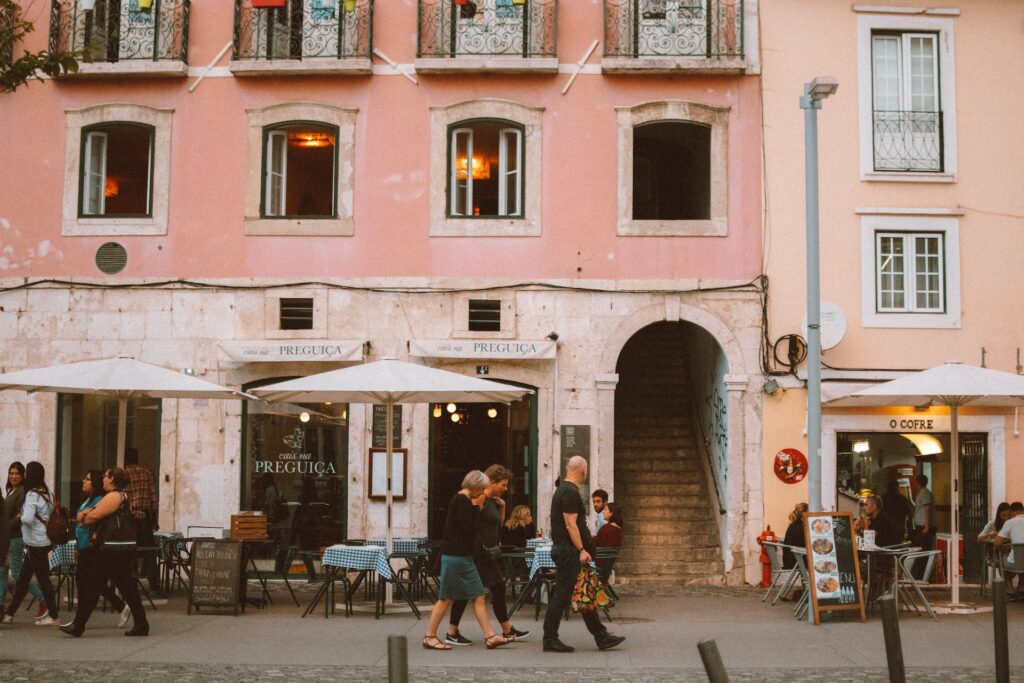
How can I make my ground floor safe?
Living on the ground floor offers convenience, but it also comes with unique security considerations. Whether you reside in a house or an apartment, it’s essential to take steps to make your ground floor safe and secure.
Here are some valuable tips to help you create a safer living environment:
Secure Entry Points
- Install solid doors with deadbolt locks for both the front and rear entrances.
- Reinforce door frames to make them more resistant to forced entry.
- Use window locks and consider shatterproof glass for windows, especially those close to entry points.
Outdoor Lighting
- Ensure proper outdoor lighting around all entryways and pathways.
- Consider motion-activated lights to deter potential intruders and improve visibility during nighttime.
Security System
- Install a security system with door/window sensors, motion detectors, and an audible alarm.
- Opt for a monitored security system if available in your area for added protection.
Window Coverings and Visibility
- Use curtains, blinds, or shades to maintain privacy and obstruct the view from outside.
- Ensure clear visibility from inside your home to monitor your surroundings effectively.
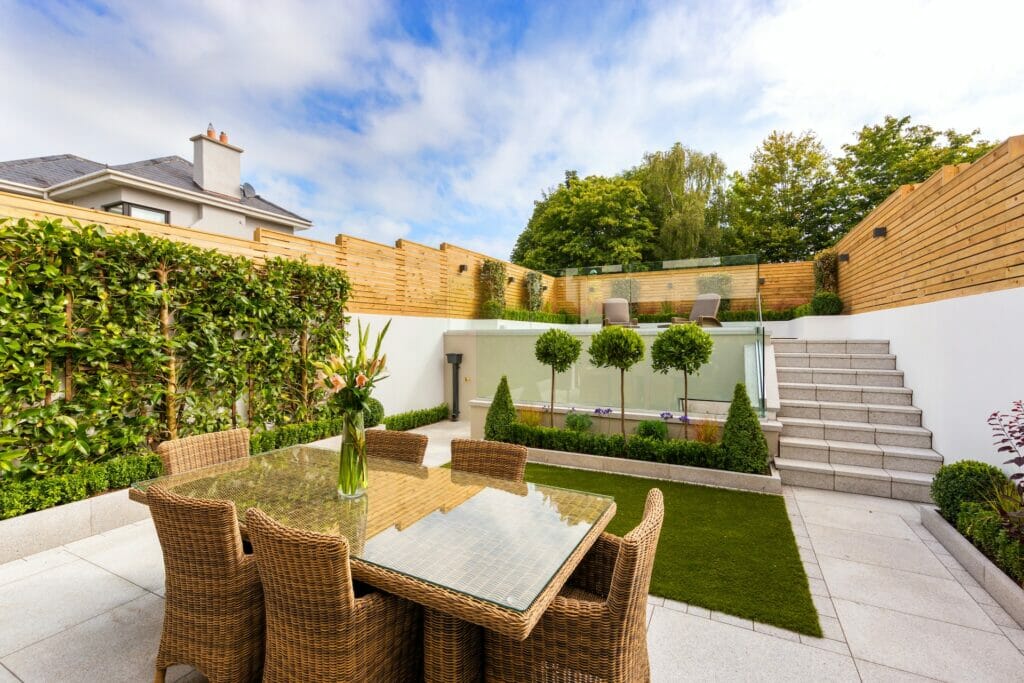
Looking to buy a house in Portugal?
Portugal offers a wide range of locations to buy property, from cosmopolitan cities like Lisbon and Porto to charming coastal towns like Cascais and Albufeira. The Algarve region is also a popular area for those looking for a holiday home or retirement property.
Lisbon
Lisbon is the capital of Portugal and is known for its historic architecture, cultural attractions, and lively nightlife. The city has a diverse range of neighborhoods, each with its own character and atmosphere. Property prices in Lisbon are generally higher than in other parts of Portugal, particularly in popular areas such as Chiado, Baixa, and Bairro Alto.
Porto
Porto is Portugal’s second-largest city and is known for its port wine, charming riverside district, and historic buildings. Porto has a more laid-back atmosphere than Lisbon and is popular with expats looking for a slower pace of life. Property prices in Porto are generally lower than in Lisbon but have been rising in recent years.
Algarve
The Algarve is a popular tourist destination in the south of Portugal, known for its sandy beaches, golf courses, and warm climate. The region is particularly popular with retirees and second-home buyers. Property prices in the Algarve can vary widely depending on the location, with some of the most sought-after areas being Vilamoura, Albufeira, and Lagos.
Silver Coast
The Silver Coast is a region of Portugal located north of Lisbon and stretches from the Atlantic Ocean to the hills of the interior. The area is known for its rugged coastline, traditional fishing villages, and historic towns.
Buying a home in the Silver Coast is generally cheaper comparing to Lisbon and the Algarve, but there are still some areas that are popular with expats, such as the town of Obidos and the beach resort of Sao Martinho do Porto.
Madeira
Madeira is known for its stunning natural beauty, with lush forests, rugged mountains, and crystal-clear waters. This makes it an ideal location for those who love the outdoors and want to enjoy a relaxing, natural lifestyle.
Madeira consistently ranks high in quality-of-life indices, which make the island a popular tourist destination, with millions of visitors each year. This means that there is a high demand for short-term rental properties, making it an attractive option for those looking to invest in vacation rentals.
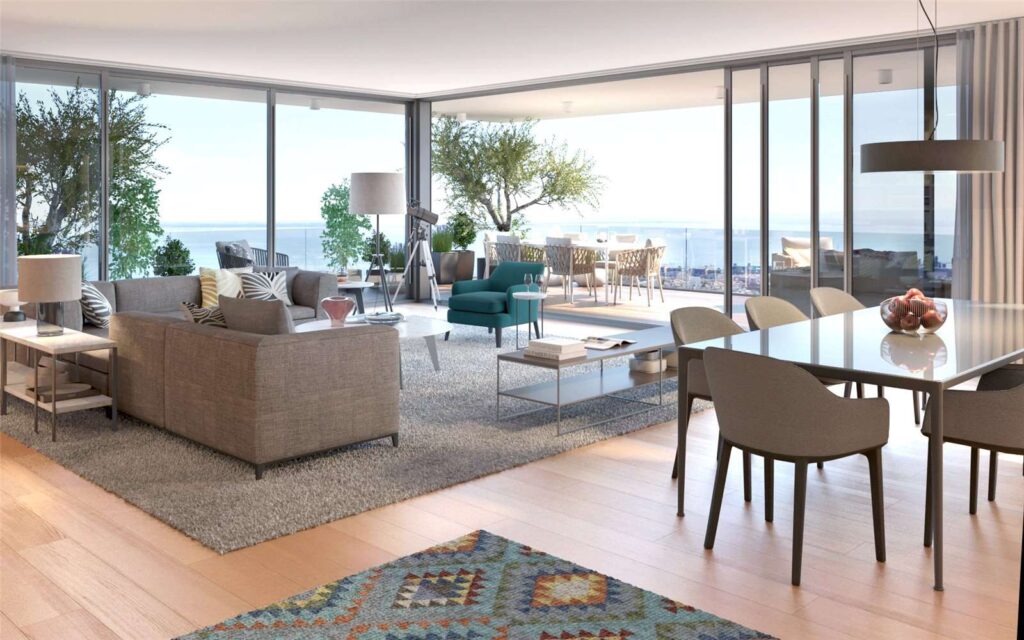
Why to work with us for invest in Portugal?
If you’re in the market for a new home, working with a buyer’s agent could be the smartest decision you make. We have extensive knowledge of the local real estate market and can provide valuable insights on neighborhoods, property values, and trends. We can help you find properties that match your criteria, schedule viewings, and handle negotiations on your behalf.
In addition, we can provide objective feedback and help you evaluate the pros and cons of different properties. We’ll help you navigate complex legal and financial issues, such as contracts, inspections, and financing (if applicable), and ensure that all the necessary paperwork is handled properly.
Working with us can save you time, effort, and even money in the long run. We’ll help you avoid common mistakes and pitfalls that many expats or first-time home buyers encounter, and provide peace of mind throughout the entire process. So if you’re ready to find your dream home, consider partnering with us to make the process smooth and stress-free.
Frequently Asked Questions About Top Floor or Ground Floor
Is ground floor or top floor better?
The choice between the ground floor and the top floor largely depends on personal preferences and needs. Also the ground floor offers easier accessibility and convenience, making it ideal for those with mobility issues or a preference for a hassle-free entry and exit. However, the top floor provides enhanced privacy, potentially better views, and reduced noise from neighbors and street-level activities. Ultimately, the “better” option depends on your lifestyle, priorities, and the specific advantages you value most in your living situation.
Can a foreigner buy a house in Portugal?
Yes, foreign nationals are allowed to buy property in Portugal, and the process is relatively straightforward. Portugal has open and welcoming policies when it comes to property ownership by non-residents, and many foreigners choose to purchase homes in Portugal for various reasons, such as vacation homes, retirement, or investment purposes.
Why are upper floors more expensive?
Upper floors are generally more expensive due to their appeal factors, primarily better views, increased privacy, and reduced noise levels. Properties on higher floors often command higher prices because they offer panoramic vistas, escape the hustle and bustle of street-level activities, and provide a quieter and more serene living environment. Additionally, the perception of enhanced security and better natural light can contribute to the premium pricing of upper-floor units, making them more desirable to buyers and renters alike.
Is living on ground floor safe?
Living on the ground floor can be safe, but it depends on several factors. Ground-floor safety varies by location, building design, and security measures. Ground-floor units are often more accessible to potential intruders, making them potentially more vulnerable to break-ins. However, many buildings have security measures in place, such as secure entry systems, alarm systems, and surveillance cameras, to mitigate these risks.
Is Portugal a safe country?
Portugal is generally considered a safe and peaceful country. It has a relatively low crime rate compared to many other European countries. The country is known for its stability, welcoming atmosphere, and a strong emphasis on security and public safety. However, like any other country, Portugal is not entirely devoid of crime or safety concerns, so it’s always a good idea to take standard precautions while traveling or living there, such as safeguarding your belongings, being aware of your surroundings, and following local safety recommendations
How to make my ground floor safe?
To make a ground floor safe, prioritize security by securing doors and windows with strong locks, reinforcing entry points, and installing window locks; ensure proper outdoor lighting to deter intruders and improve visibility; invest in a security system with sensors and alarms; maintain clear visibility by trimming landscaping near windows and entryways; and use window coverings for privacy, such as curtains or frosted glass, while maintaining the ability to see outside to monitor your surroundings.
Do I need a visa to buy house in portugal?
No, you do not need a visa specifically to buy a house in Portugal. Purchasing property in Portugal is generally open to foreign nationals, and you can do so with a valid passport or another acceptable form of identification. However, if you plan to stay in Portugal for an extended period or intend to use your property as a residence, you may need to apply for a visa or residence permit depending on your nationality and the length of your stay.




